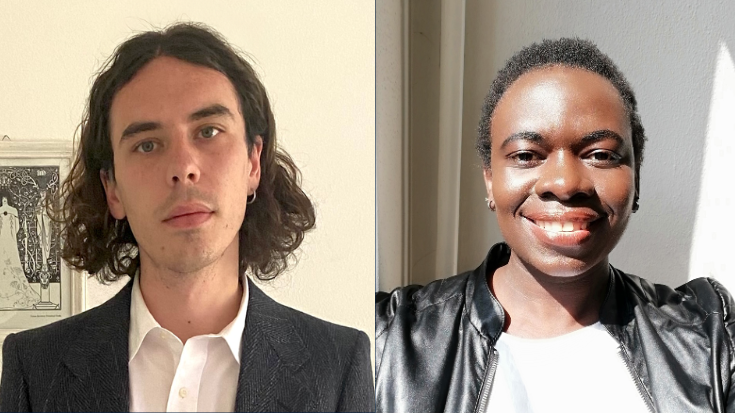2 NWO PhD in the Humanities grants for FASoS
Of the 20 PhD in the Humanities grants that NWO awarded this year, 2 will go to FASoS. The aim of the PhDs in the Humanities programme is to boost the recruitment and advancement of young talent in the humanities.
In ‘Adaptive Architecture: The Groovy Inheritance of Neoliberal Architecture and Urbanism’, Max Boutell will, under the supervision of Cyrus Mody and Jacob Ward, study the role adaptive architects played in the neoliberal turn in architecture and urban policy.
In ‘Gender in Motion: Evolving gender expectations amongst East African Refugees in the Netherlands’, Sharon Anyango will, under the supervision of Brigitte Le Normand and Bilisuma Dito, examine how gender expectations are negotiated and constructed throughout the life trajectories of Somali and Eritrean refugees in the Netherlands.
Adaptive Architecture: The Groovy Inheritance of Neoliberal Architecture and Urbanism
Adaptive architects sought to employ cybernetics to expand the public’s participation in the built environment. Rather than democratise built space, I hypothesise that their work did more to inform projects which used the built environment to suppress political conflict. This project will provide a much-needed account of the role adaptive architects played in the neoliberal turn in architecture and urban policy. More broadly, this project will connect cybernetics, counterculture, and neoliberalism, and in doing so, contribute to urgent scholarly debates concerning their respective legacies.
Gender in Motion: Evolving gender expectations amongst East African Refugees in the Netherlands
The Netherlands has witnessed an influx of Eritrean and Somali refugees. Both populations originate from contexts characterized by gender roles influenced by religious beliefs and customs that are considered to be far removed from a secularized society like the Netherlands. Variations in religious beliefs, with Somalis primarily being Muslims and Eritreans, Orthodox Christians, alongside differing durations of stay and asylum-trajectories, could contribute to changing ideas and expectations about gender roles.
The project examines how gender expectations are negotiated and constructed throughout the life trajectories of Somali and Eritrean refugees in the Netherlands. This is examined by employing theories of intersectionality, gender performativity, gender construction and negotiation, and lifecycle theories, as well as by taking into account the complexities of displacement and interaction with host society. The project will use oral life history, ethnography, and critical discourse analysis.
